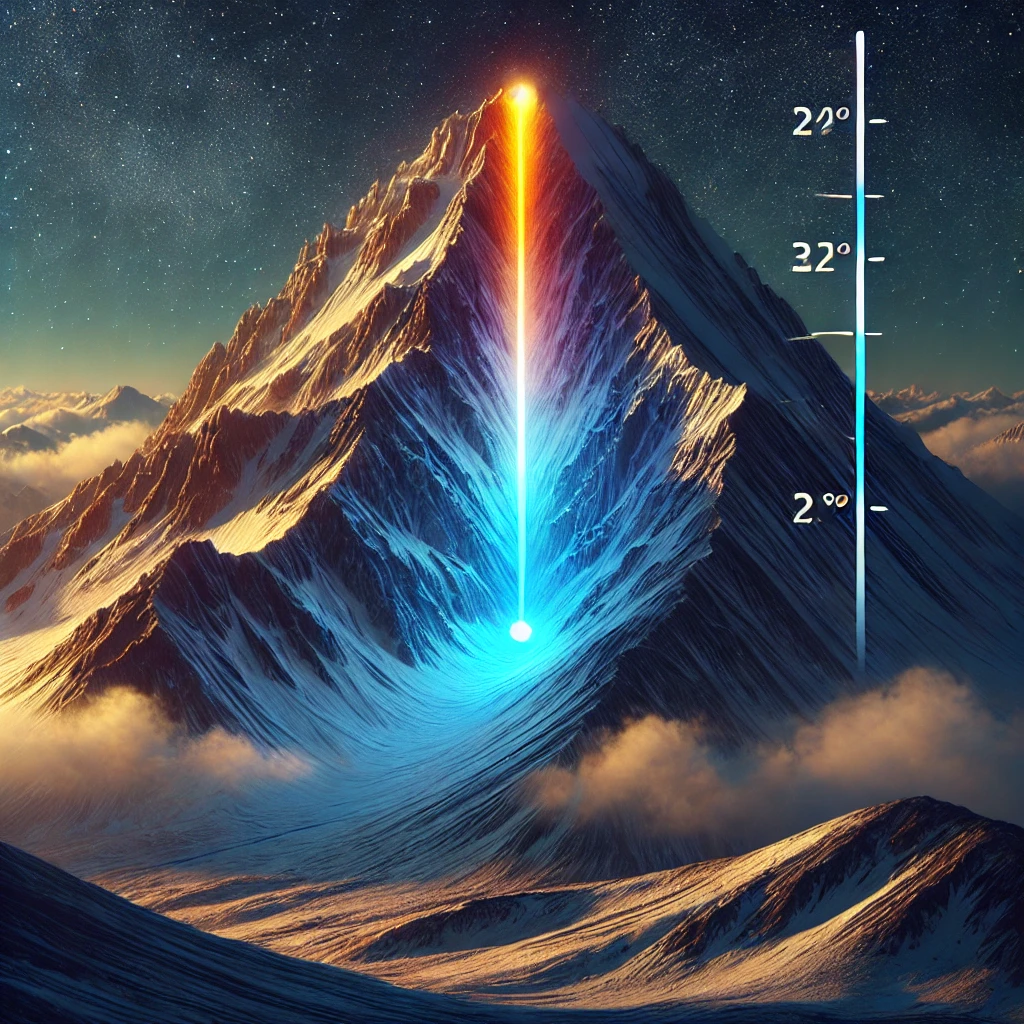

The truth is in the details
Hello! I am Gaby
I focus on the details (continuously)
I am happy (usually)
I am alive (temporarily)
I love trying to understand the world and how we humans are. Making videos, writing... whatever.


The closer to the sun, the colder....(the mountain)
Type
Vídeo
Data
20/01/2017
Temes
Physics
I have just written an article that may be published in my children's school magazine, about why it snows and is very cold in high mountains – even colder than at lower altitudes.
I find it very amusing to try to understand why... my child asked me and I did not know how to answer; I researched and tried to write an article that is as understandable as possible for a child... it is not always easy but I tried...
Here is the article:
Why is it colder in the mountains
if warm air rises and we are closer to the sun?
Have you ever wondered why it is colder in the mountains and why it snows more, if warm air always rises and we are closer to the sun?
Shouldn't it be warmer?
First, let's confirm one thing: warm air rises because it weighs less than the cold air around it. Because of this effect, a balloon – one of those that carry people – can fly. They heat up the air inside the balloon. This is proven.
Therefore, if warm air always rises, it would seem evident that the higher you go on a mountain the warmer it should be. And at the top of Everest it should be worse than a sauna. You would have to go in a swimsuit.
But that is not the case.
It would also seem logical that at the top of a mountain, since we are closer to the sun, we should be warmed more... therefore, the snow should melt… but on the contrary, we do not go skiing at the beach, we go skiing in the mountains.
Why?
First we must understand one concept: atmospheric pressure. This is the main cause preventing the seemingly logical outcome regarding heat and mountains.
Even if it doesn't seem so, air has weight and exerts pressure. We do not notice it because our body is already used to living with weighted air. Imagine we live in an ocean, but instead of water, it is an ocean full of air.
The deeper you are in that ocean, the more the air presses you, since there is more above your head. We, obviously, are at the lowest part of this air ocean because we walk on the ground, not in the clouds.
Thus, atmospheric pressure is the measure of how compressed the air is in a place. The higher you go, the less compressed the air will be since there is less above. Each time you ascend, there is less air until you reach space, where there is virtually none.
Now that we understand a bit about atmospheric pressure, let's see how it relates to the heat we want to explain.
The other thing you should know is that air does not heat up from the sun's rays. The sun's rays reach the earth or the sea without practically touching the air. Therefore, what heats up with the sun's rays when it gets hot is not the air but the ground and the water. Then, the ground and the sea, being hot, heat up the air in contact with them. Thus, the first air to heat up is the one closest to the ground in this air ocean in which we live.
Then this air, being hotter than the one above, does indeed rise; but as it rises it cools, gradually losing its heat as the colder air above takes it away. Also, as this rising air finds there is less air (as we said, it is less compressed), it spreads out more.
The other factor that makes it warmer at lower altitudes than at higher ones is something you may have heard of: the greenhouse effect.
Mixed in the air are many gases: oxygen (what we breathe), methane, carbon dioxide, ozone... some of these gases prevent the heat emitted by the ground and the sea (because they have been heated by the sun) from escaping, reflecting it back to the ground. In short, they trap the heat.
And as I mentioned, as you go higher, the air is less compressed (i.e., there is less atmospheric pressure, there is less air) so there are also fewer of these heat-reflecting gases. Therefore, the heat that reaches higher up is lost more easily.
In fact, if it were not for this ocean of air in which we live, which holds the heat arriving from the sun, the temperature on earth would be about 16 degrees below zero. HOW COLD!!!!
Now we can understand why, the higher you go, the colder it gets. The majority of the blame for this phenomenon is on: ATMOSPHERIC PRESSURE.
And if you want to play with atmospheric pressure, you can visit this webpage where they perform very fun experiments.
This will convince you that it really exists!!!!
http://enfilat.blogspot.com.es/2011/06/el-raco-de-la-ciencia-experiments.html
